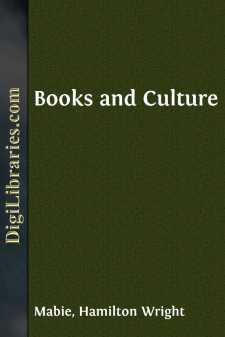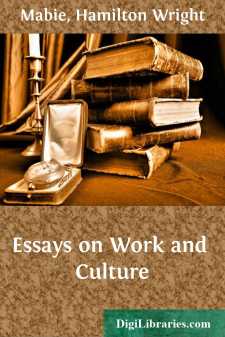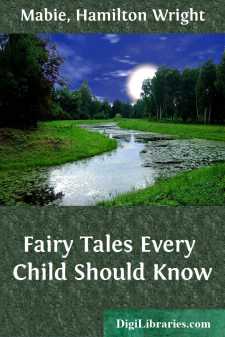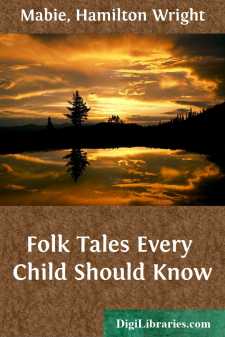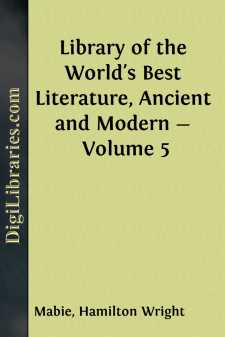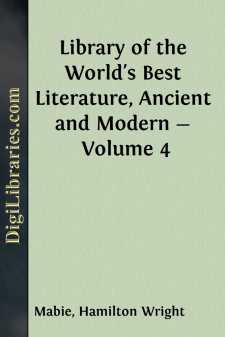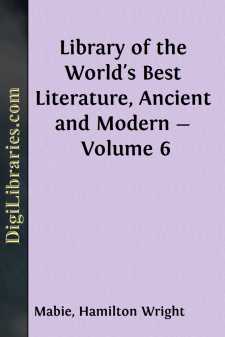Categories
- Antiques & Collectibles 13
- Architecture 36
- Art 48
- Bibles 22
- Biography & Autobiography 813
- Body, Mind & Spirit 142
- Business & Economics 28
- Children's Books 12
- Children's Fiction 9
- Computers 4
- Cooking 94
- Crafts & Hobbies 4
- Drama 346
- Education 46
- Family & Relationships 57
- Fiction 11828
- Games 19
- Gardening 17
- Health & Fitness 34
- History 1377
- House & Home 1
- Humor 147
- Juvenile Fiction 1873
- Juvenile Nonfiction 202
- Language Arts & Disciplines 88
- Law 16
- Literary Collections 686
- Literary Criticism 179
- Mathematics 13
- Medical 41
- Music 40
- Nature 179
- Non-Classifiable 1768
- Performing Arts 7
- Periodicals 1453
- Philosophy 64
- Photography 2
- Poetry 896
- Political Science 203
- Psychology 42
- Reference 154
- Religion 513
- Science 126
- Self-Help 84
- Social Science 81
- Sports & Recreation 34
- Study Aids 3
- Technology & Engineering 59
- Transportation 23
- Travel 463
- True Crime 29
Hamilton Wright Mabie
Hamilton Wright Mabie (1846-1916) was an American essayist, editor, and critic renowned for his works on literature and culture. He served as an editor for *The Christian Union* (later *The Outlook*) and wrote numerous essays promoting the moral and educational value of literature. Mabie was also a prolific author, penning books such as "My Study Fire" and "Books and Culture," which contributed significantly to the intellectual and cultural discourse of his time.
Author's Books:
Sort by:
Chapter I. Material and Method. If the writer who ventures to say something more about books and their uses is wise, he will not begin with an apology; for he will know that, despite all that has been said and written on this engrossing theme, the interest of books is inexhaustible, and that there is always a new constituency to read them. So rich is the vitality of the great books of the world that...
more...
Chapter I Tool or Man? A complete man is so uncommon that when he appears he is looked upon with suspicion, as if there must be something wrong about him. If a man is content to deal vigorously with affairs, and leave art, religion, and science to the enjoyment or refreshment or enlightenment of others, he is accepted as strong, sounds and wise; but let him add to practical sagacity a love of poetry...
more...
INTRODUCTION TO "FAIRIES EVERY CHILD SHOULD KNOW" The fairy tale is a poetic recording of the facts of life, an interpretation by the imagination of its hard conditions, an effort to reconcile the spirit which loves freedom and goodness and beauty with its harsh, bare and disappointing conditions. It is, in its earliest form, a spontaneous and instinctive endeavor to shape the facts of the...
more...
INTRODUCTION The group of stories brought together in this volume differ from legends because they have, with one exception, no core of fact at the centre, from myths because they make no attempt to personify or explain the forces or processes of nature, from fairy stories because they do not often bring on to the stage actors of a different nature from ours. They give full play to the fancy as in...
more...
I HANS IN LUCK Hans had served his Master seven years, and at the end of that time he said to him: "Master, since my time is up, I should like to go home to my mother; so give me my wages, if you please." His Master replied, "You have served me truly and honestly, Hans, and such as your service was, such shall be your reward;" and with these words he gave him a lump of gold as big as...
more...
If we knew how the words in our language were made and what they have meant to successive generations of the men and women who have used them, we should have a new and very interesting kind of history to read. For words, like all other creations of man, were not deliberately manufactured to meet a need, as are the various parts of a bicycle or of an automobile; but grew gradually and slowly out of...
more...
OTTO EDWARD LEOPOLD VON BISMARCK (1815-) BY MUNROE SMITH tto Edward Leopold, fourth child of Charles and Wilhelmina von Bismarck, was born at Schönhausen in Prussia, April 1, 1815. The family was one of the oldest in the "Old Mark" (now a part of the province of Saxony), and not a few of its members had held important military or diplomatic positions under the Prussian crown. The young Otto...
more...
RICHARD HENRY DANA, SENIOR (1787-1879)Richard H. Danaichard Henry Dana the elder, although he died less than twenty years in 1787, in Cambridge, four years after Washington Irving. He came of a distinguished and scholarly family: his father had been minister to Russia during the Revolution, and was afterwards Chief Justice of Massachusetts; through his mother he was descended from Anne Bradstreet. At...
more...
GEORGE BANCROFT (Continued from Volume III) WOLFE ON THE PLAINS OF ABRAHAMFrom 'History of the United States'But, in the meantime, Wolfe applied himself intently to reconnoitering the north shore above Quebec. Nature had given him good eyes, as well as a warmth of temper to follow first impressions. He himself discovered the cove which now bears his name, where the bending promontories almost...
more...
THE ABBÉ DE BRANTÔME (PIERRE DE BOURDEILLE) (1527-1614) very historian of the Valois period is indebted to Brantôme for preserving the atmosphere and detail of the brilliant life in which he moved as a dashing courtier, a military adventurer, and a gallant gentleman of high degree. He was not a professional scribe, nor a student; but he took notes unconsciously, and in the evening of his life...
more...


